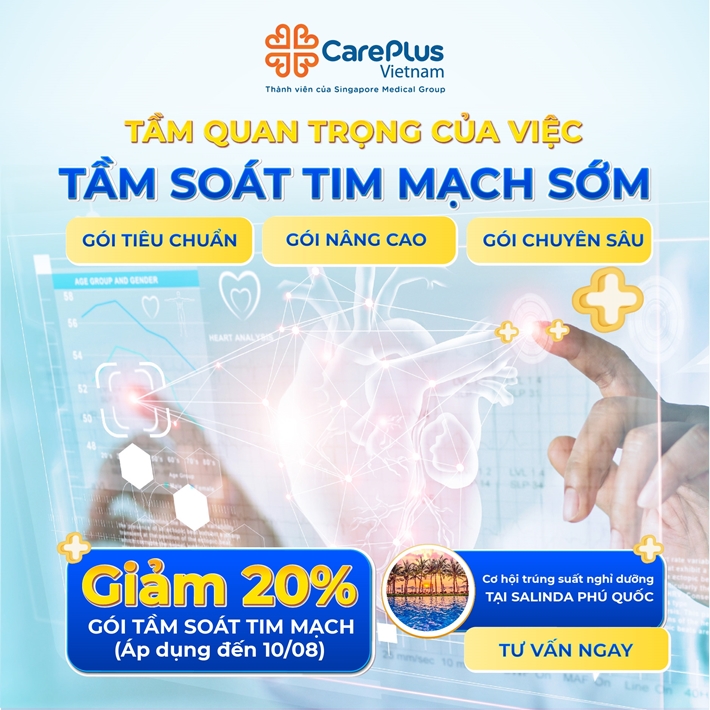WHO SHOULD UNDERGO CARDIOVASCULAR SCREENING AND THE IMPORTANCE OF CARDIOVASCULAR SCREENING⁉️
Stroke is a dangerous acute disease, often occurring suddenly, with a high mortality rate if not detected early and treated promptly. Every year in Vietnam, more than 200,000 people have a stroke, more than 50% of them die, and only 10% survive to recover fully. Worryingly, stroke is showing signs of getting younger, increasing sharply from 40-45 years old or even appearing at 20

9/6/2023 11:11:18 AM
Cardiologists recommend that everyone should proactively undergo cardiovascular screenings when experiencing unusual symptoms and undergo cardiovascular screenings twice a year to detect, prevent, and minimize the complications caused by heart diseases. So, what are the signs, and who are the individuals that should undergo early cardiovascular screening?
Signs that require immediate cardiovascular screening
🔹Cardiovascular diseases are a group of diseases related to blood vessels (veins, arteries, capillaries) and the heart, affecting the cardiovascular system.
🔹Many cardiovascular patients (not just the elderly but even young adults) report experiencing some of the following symptoms:
🔹Shortness of breath, difficulty breathing: Feeling like something is compressing the chest or struggling to take deep breaths, even when exerting effort or at rest. This condition can occur at night while sleeping.
🔹Rapid or irregular heartbeat: Many people feel their heart beating fast and irregularly in the chest, indicating potential abnormal heart structures.
🔹Chest pain (angina): A gripping pain in the chest, especially on the left side, could be the beginning of coronary artery disease, reduced blood flow to the heart muscle, or inflammation.
🔹Dizziness or fainting: Aortic valve disease and hypertrophic cardiomyopathy can cause fainting, often occurring during or after exertion. In some cases, low blood pressure can lead to morning dizziness.
How often should cardiovascular screening be done? Identifying individuals who need early cardiac screening
According to experts, undergoing cardiovascular screening twice yearly is the most effective way to control the disease. Specifically, the following individuals need early cardiovascular screening:
🔸People who constantly feel tired experience shortness of breath, muscle pain, and frequent cramps
🔸Those frequently experiencing palpitations or unexplained heart fluttering
🔸Individuals with excessively fast or slow heart rates
🔸Individuals with a family history of heart disease
🔸Smokers and heavy alcohol consumers
🔸Overweight or obese individuals with high-fat diets and low physical activity levels
🔸Those with frequent high blood pressure or diabetes
You should schedule regular cardiovascular health check-ups to gain peace of mind and accurate insights into your health. This way, you can proactively protect and maintain your cardiovascular health, mitigating hidden risks associated with cardiovascular diseases.